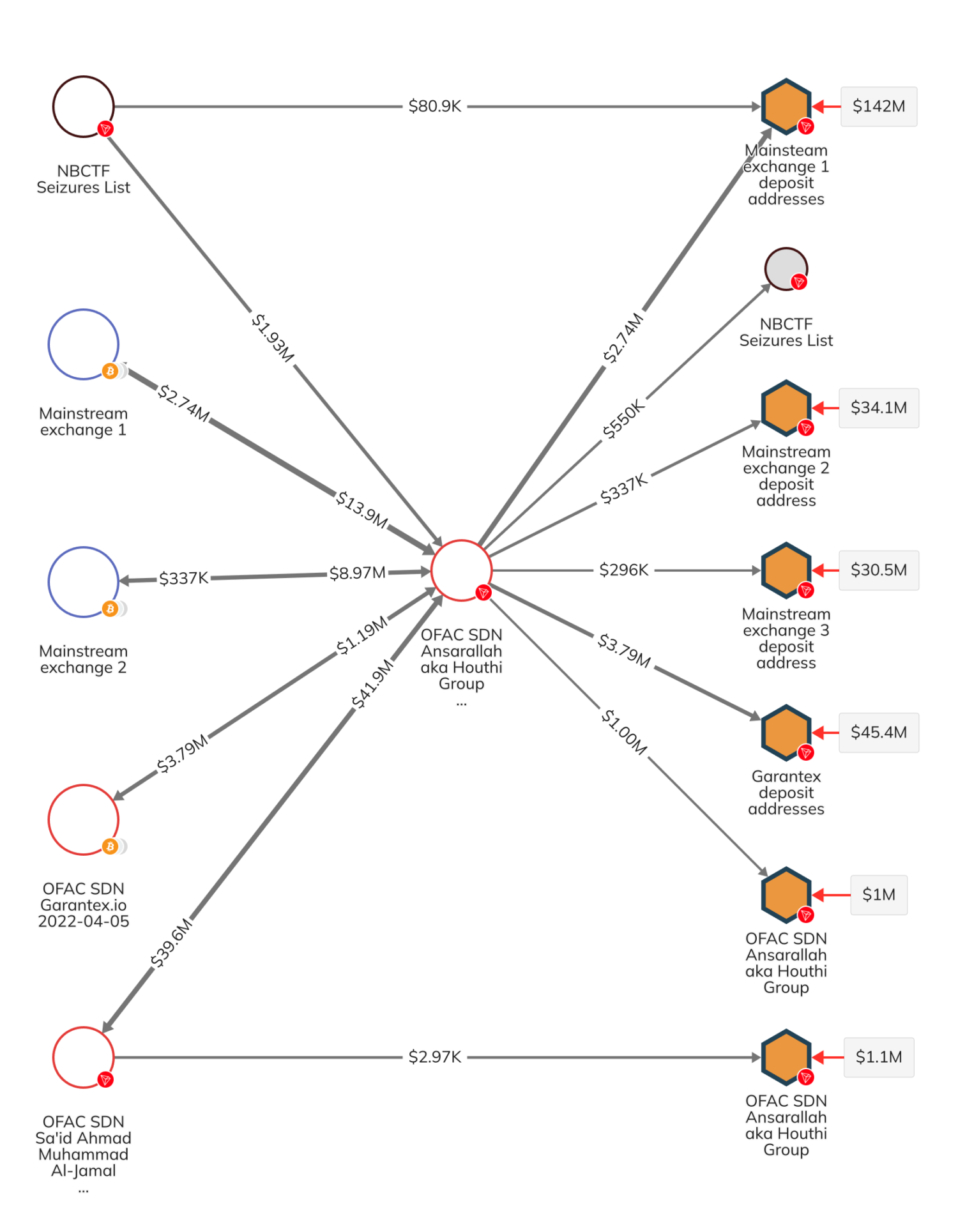The US Treasury Department has imposed sanctions on eight cryptocurrency wallet addresses associated with the Russian crypto exchange Garantex and the Houthis.
The Office of Foreign Assets Control (OFAC) has sanctioned these eight crypto addresses, identified by blockchain forensic firms as being linked to these entities. Two of these addresses are deposit accounts at major crypto exchanges, while the remaining six are privately managed.

Visualization of transaction flow related to recent sanctions.
The sanctioned addresses are reported to have facilitated nearly $1 billion in transactions linked to designated entities, with most funds financing Houthi operations in Yemen and surrounding regions.
Slava Demchuk, a specialist in crypto-related money laundering and a consultant for the United Nations Office on Drugs and Crime, stated that “the inclusion of wallets connected to the Houthis signifies a larger acknowledgment of the role that cryptocurrency plays in geopolitical conflicts and the financing of terrorism.” He further elaborated:
“The implications are extensive — compliance frameworks must quickly adjust, efforts for attribution will be heightened, and decentralized platforms might undergo greater scrutiny.”
Demchuk emphasized that this development alters the regulatory environment, asserting that cryptocurrency is now clearly within the realm of international security.
Who are the Houthis?
The Houthis, also referred to as Ansar Allah, are a political and armed movement in Yemen that has its roots in the Zaidi Shia community. Initially formed as a revivalist and reformist group, they have become a significant force in Yemen’s ongoing conflict.
Related: The US DOJ reports the seizure of crypto intended for financing Hamas.
In recent years, the Houthis have launched attacks against military and civilian vessels in the Red Sea using missiles and drones. Earlier this year, the group was designated as a foreign terrorist organization by a US official.
The announcement highlighted that “the actions of the Houthis pose threats to the safety of American citizens and personnel in the Middle East, the security of our closest allies, and the stability of global maritime commerce.” The group was recently targeted by a US bombing campaign.
Related: Binance asserts it has no special relationship with Hamas, seeks to dismiss lawsuit.
Garantex: Russia’s Cryptocurrency Laundering Hub
Garantex is a Russian cryptocurrency exchange that faced sanctions and was shut down in early March after allegedly facilitating money-laundering activities. At that time, the leading stablecoin issuer froze $27 million on the platform, forcing it to cease operations.
The exchange is said to have attempted to shift millions of dollars in a bid to rebrand itself as “Grinex.”
In mid-March, India’s Central Bureau of Investigation announced the arrest of Aleksej Bešciokov, a Lithuanian national accused of running Garantex.
This arrest stemmed from US charges related to conspiracy for money laundering, operating an unlicensed money-transfer business, and violating the International Emergency Economic Powers Act.
Magazine: The era of financial nihilism in cryptocurrency has ended—it’s time to envision bigger dreams.
